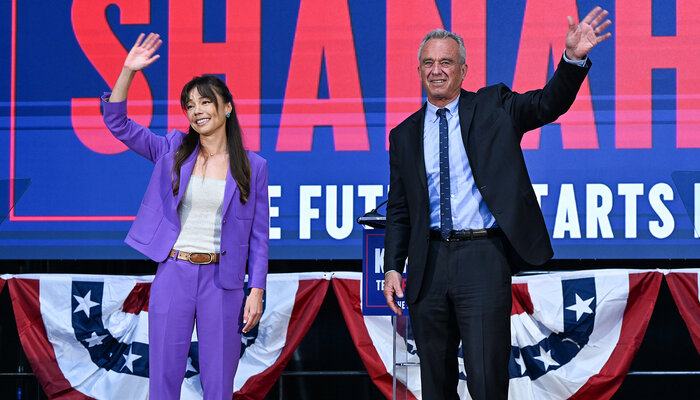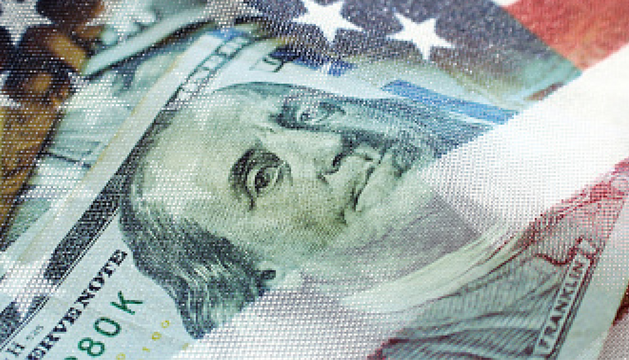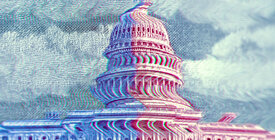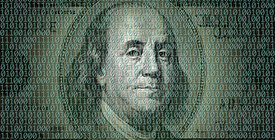
RFK Jr.’s VP Pick and the Dangers of Self-Funded Campaigns
The pressures created by big money in politics give an advantage to wealthy candidates, resulting in less choice for voters.

Part of
Independent presidential candidate Robert F. Kennedy Jr. announced Tuesday that his pick for vice president is Nicole Shanahan, a wealthy tech entrepreneur and lawyer. Shanahan’s prior political activity seems to be limited to giving money, including a $4 million donation to a pro-RFK Jr. super PAC to help fund a Super Bowl ad.
Kennedy’s campaign has raised far less than the 2024 frontrunners, and he may see a running mate with the ability to self-fund as necessary to keeping his bid afloat.
In addition to the super PAC donation, Shanahan had given Kennedy’s campaign the maximum contribution of $6,600, but as a member of the ticket she can put up however much she wants. Thanks to the Supreme Court’s 2010 ruling in Citizens United, rich people, corporations, and other special interests can make unlimited donations to super PACs. But since super PACs are not supposed to coordinate their activity with campaigns, there are big advantages to Kennedy’s campaign having its own big-money spigot.
Kennedy’s choice highlights the crushing pressures of fundraising in today’s elections. Campaign costs have soared in the Citizens United era of unlimited donations to super PACs and “dark money” groups that keep their donors secret due to a boom in spending by the richest donors, making bigger and bigger donations increasingly essential to running for office.
The richest Americans increasingly throw their own hats in the ring, even though self-funders rarely win. In the 2022 congressional elections, 44 candidates each spent more than $1 million of their own money on their bids, and only six won. Billionaire Michael Bloomberg, the former mayor of New York, spent $1 billion on his own 2020 presidential campaign, which lasted just three months.
Even though they often lose, self-funders distort politics. Their unlimited spending helps drive up the costs of campaigns, making them too much of a rich person’s game and limiting the choices available to voters. In the 2018 Illinois gubernatorial election, voters faced a choice between two wealthy self-funders, each of whom spent tens of millions on their bids. Many otherwise promising candidates never even run, for fear of being unable to secure financing.
Some have suggested that self-funding candidates can’t be corrupted by special interests, because they are too rich to bribe. But that misses the reality that wealthy candidates typically already represent a special interest: the business and industry that got them (or their parents) rich. More generally, studies show that the affluent have different policy views than most Americans. For example, they unsurprisingly tend to oppose higher taxes on the wealthy.
Politics should be open to all, not just a privileged few. One key reform is public financing through small donor matching, which allows candidates without wealth or big donors to run people-powered campaigns. We should heed the warning of the first RFK to make a mark on American politics, who said, “we are in danger of creating a situation in which our candidates must be chosen from among the rich … or those willing to be beholden to others.”
More from the Money in the 2024 Election series
-
Online Ad Spending in 2024 Election Totaled at Least $1.9 Billion
The most comprehensive analysis to date shows the scale of political spending on the four largest digital platforms, as well as stark differences in strategy between candidates, parties, and outside groups. -
Dark Money Hit a Record High of $1.9 Billion in 2024 Federal Races
Spending by groups that do not disclose their donors has increased and become harder to trace. -
Online Ad Spending in the 2024 Election Topped $1.35 Billion
Online political advertising surged in the weeks before the election, driven by candidates’ appeals to voters and national groups seeking to influence state ballot measure results.




